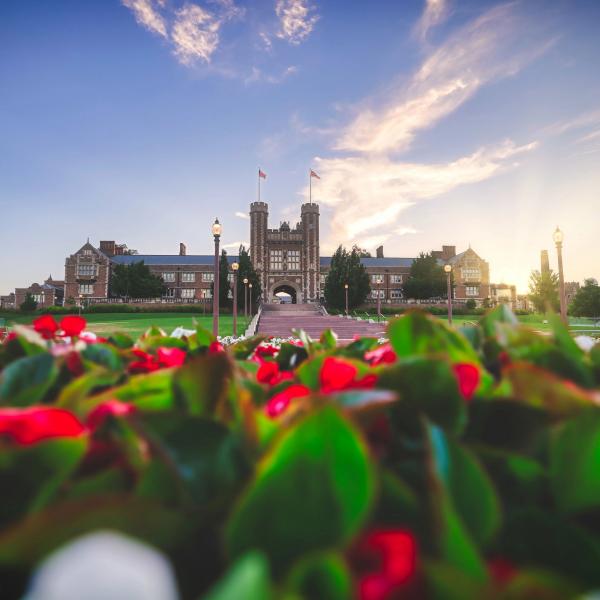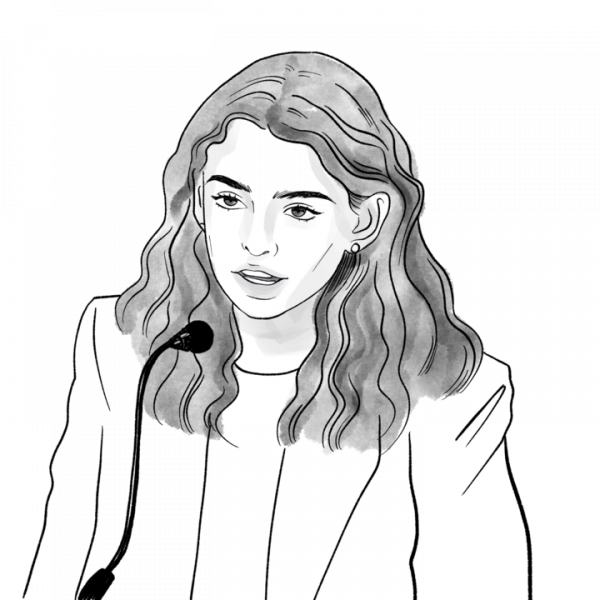Dr. Amelia Nguyen, PhD graduate from the Pakrasi lab in the Department of Biology, sat down for an interview to discuss her transition from being a graduate student in academia to a biologist at the US Environmental Protection Agency (EPA).

During her graduate career, she became an expert in phycobilisome complexes, which convert light energy into chemical energy in blue-green algae. To complement her training as a biologist, she incorporated chemistry techniques to answer challenging biological questions at the systems level. This multidisciplinary approach in her graduate research continues to be her foundation on how she considers different perspectives and tools when developing solutions for her projects.
In 2016, she joined the EPA and now works as a designated federal officer for the Children’s Health Protection Advisory Committee within the Office of Children’s Health Protection. She manages an external group of experts that provide recommendations to the EPA on how to better protect children’s health in all life stages. Dr. Nguyen serves as a liaison from the national program and regional offices within the EPA to external stakeholders. She cultivates a channel for information exchange to increase transparency and provides a space for members of the public to share their lived experiences and opinions to federal government employees.
What motivated you to pursue your current career?
My passion to make a difference on a national scale motivated me to enter public service. I wanted to find a career where I could continue to learn every day, and ensure that public policymakers and implementers adequately represent Asian Americans, Native Hawaiians, and Pacific Islanders—a significant, yet often underrepresented community within our great nation. That’s why, when I was applying for jobs, I cast a wide net and applied to numerous federal government departments and agencies as well as consulting companies throughout the United States. The application process helped me identify my wants, needs, and deal-breakers.
If I can offer some advice to those starting out in their careers—before and during your job searches, determine what brings you happiness and run with it, but also be realistic. Know that the job you get out of graduate school does not have to be the only job in your career. The first job could be your launchpad to a better and fulfilling job in the future.
Does your current career align with what you initially wanted to pursue when you first started your PhD or did your career goals change? And if so, why?
When I first started graduate school, I wanted to be an expert in my field, but how I could apply the skills and the education I got through the program at WashU was still very vague in my mind. As a result, I actively sought out volunteer experiences to help me explore how I could apply my graduate training in a variety of rewarding careers. I helped found ProSPER (Promoting Science Policy, Education, and Research), a student-led graduate organization that focused on science communication and science policy. In addition, I was very involved in BALSA (Biotechnology and Life Science Advising Group), a student-led consulting organization on campus, and served as the Director of Finance, amongst many other roles. By being involved in these organizations and keeping an open mind, I learned useful skills and gained knowledge from each experience to narrow down the options of how I could apply my doctoral training. This is something that still applies as I explore different offices at the EPA to continuously grow as a professional to this day.
What skills from your graduate program were transferable to your current position?
Although I enjoyed my experience as a graduate student and received support from many professors, the journey of having to design a testable hypothesis was challenging, especially the troubleshooting process. Through this experience, I learned to be persistent. Persistence is one big skill that has been so impactful because, as I address multifaceted science policy challenges at EPA, there are so many different variables that could affect EPA’s final technical and policy determinations. When times are tough, I break down my deadlines into bite-sized manageable pieces. By doing so, I can tackle the problems in a way that will help me stay motivated and dare to continue to work toward the vision that we all have, which is about the EPA protecting human health and the environment. Communication is another skill that I value most. Through BALSA and presenting at national and international conferences, I have learned to communicate complex information in a way that the general public can understand. This skill is also important as I manage a body of external stakeholders and lead meetings because I need to ensure that everyone is hearing each other and is able to effectively work through any project or issue that arises.
What does your average workday look like for you? Can you describe your daily or weekly work activities?
My workday revolves around meetings, meetings, and more meetings. To build my personal credibility and cultivate relationships with all my stakeholders, I have been intentionally organizing meetings with experts on the Children’s Health Protection Advisory Committee, which I am managing, and colleagues from different offices in the federal government to introduce myself, ask for feedback on ways to improve, listen to their interests and goals, and build coalitions. I have also been frequently meeting with my managers at different levels of the Agency to present a plan of what I would do for different stages of my projects. The other part of my job that I have been prioritizing is learning the institutional knowledge of the office as quickly as possible so that I can be prepared and provide concrete options to inform my management’s decision-making process.
What advice do you have for students interested in similar careers or generally non-academic positions?
First, ask yourself the hard questions like, “What do I truly want in a career?” The answer can really be anything that motivates you like a six-digit salary, to live in a specific location, or to focus on a particular topic. Second, communicate what you want to the people in your life so that you can start to build support. You do not have to be afraid that someone may judge you for what you want or do not want to do. Lastly, you have to be able to communicate how you can apply the skills you learned while completing your dissertation to a hiring panel.
How did you find your current job? When do you recommend students begin their job search?
I got my job at the EPA by a combination of determination, hard work, and chance. I attended a conference at WashU and met a professor who worked in Washington DC. He mentioned the Presidential Management Fellows (PMF) Program, a competitive pathway into the federal government. After being named as a PMF finalist, I gained access to a talent acquisition system, where managers in the federal government posted available job opportunities. I applied to about 75 jobs and received over 25 job interviews. At the end of the process, I earned multiple job offers and chose EPA for multiple reasons such as its mission, my future colleagues, and the career trajectory I could envision at the time.
I would recommend starting your job search as early as possible. Near the end of my first year, I actively asked people for informational interviews to learn more about their journeys. It was scary at first, but I have learned that people wanted to share their experiences to help the next generation of young professionals, and the worst thing that could have happened was not getting a response to my request. Leveraging tools like LinkedIn can also help you strategically network with professionals.
Were there any WashU resources that helped you in your career search?
In addition to BALSA and ProSPER, I would say Professor Joe Jez. I rotated in his lab when I first started at WashU, and even though I was not his graduate student, I continued to maintain a close relationship with him and have his support. I appreciated how he never judged me when I started exploring opportunities outside of the ivory tower.
What is your final piece of advice for students as they finish their graduate program and transition towards these non-academic careers?
Be courageous. As you explore non-academic careers, you might not have a lot of data and you might have to take the road less traveled. People will be willing to help you, but they will not know how to help unless you ask.



